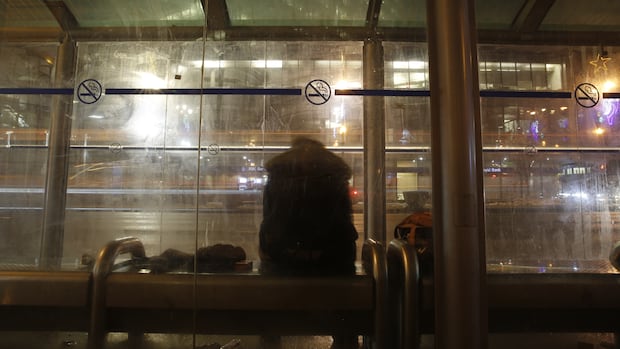ManitobaSome medical professionals say detaining highly intoxicated people for up to 72 hours could put lives at risk if it’s not accompanied by proper care.Former chief psychiatrist worried process has been ‘rushed through’Arturo Chang · CBC News · Posted: Nov 06, 2025 6:00 AM EST | Last Updated: 8 hours agoListen to this articleEstimated 4 minutesThe audio version of this article is generated by text-to-speech, a technology based on artificial intelligence.A bill passed Wednesday will allow the Manitoba government to establish a 72-hour ‘protective care centre,’ or detox facility, which the province has said is needed to address the effects of long-lasting drugs like methamphetamine. (Tyson Koschik/CBC)Some medical professionals say detaining highly intoxicated people for up to three days could put lives at risk if it’s not accompanied by proper care.On Wednesday, the Manitoba Legislature passed the NDP government’s Bill 48, the Protective Detention and Care of Intoxicated Persons Act, which will allow it to establish a “protective care centre,” or detox facility.The legislation will allow highly intoxicated people to be detained there for up to 72 hours, up from the previous maximum of 24 hours. That change is needed to address the effects of potent drugs like methamphetamine, the province has said.The plan has received support from Winnipeg’s mayor, along with police and some doctors. But Dr. Jim Simm, the province’s former chief psychiatrist, said there’s little precedent backing it up.”There’s been several studies looking at involuntary treatment for substance use. The results are generally actually worse,” he said.”I am skeptical [the centre] would have positive results, and [it has] the added risk of medical complications without proper medical supervision.”On Oct. 28, eight days before Bill 48 was passed, Simm said what’s missing from the legislation is provisions for medical oversight. There’s an added risk of medical complications if there isn’t proper supervision, he said.”The use of methamphetamine can trigger in some susceptible people an ongoing psychosis that could last sometimes even more than 72 hours,” he said, adding that they’re also at risk of having a seizure or cardiac arrest.”I’d hate to see something terrible happen because things were rushed through without any real foresight,” he said.Dr. Jim Simm, Manitoba’s former chief psychiatrist, says there needs to be adequate medical supervision at the province’s planned detox centre. (Gary Solilak/CBC)The detox site, which the province plans to open at 190 Disraeli Fwy., will be operated by Main Street Project.Last week, Housing and Addictions Minister Bernadette Smith the province had been working to get medical supervision ahead of its originally planned opening of Nov. 1. That was held up after the Opposition Progressive Conservatives called for amendments to the legislation, and it wasn’t passed prior to the Nov. 1 target.In October, a group of high-ranking medical professionals wrote a letter in support of the province’s plans, but also included a list of things that would be needed for proper implementation.Dr. Jitender Sareen, the provincial specialty lead for mental health and addictions with Shared Health, said in the letter regular assessments are “critical” to ensure appropriate care.Simm said he was skeptical the province would be able to find adequate staffing with its “ambitious” timeline for opening the site.”There’s a shortage of psychiatric staff, both psychiatrists and psychiatric nurses, clinical assistants,” he said. “The Crisis Response Centre beside the Health Sciences Centre was — it sounded like — close to a crisis state.”‘What do we hope to gain?’Dr. Paxton Bach, a Vancouver addictions medical specialist and the co-medical director of the B.C. Centre on Substance Use, said the effects of involuntary detention vary from substance to substance.He said Canadian guidelines specifically recommend against short-term detoxification for opioids without ongoing treatment.”It puts people at risk of losing tolerance to opioids such that when they leave, if they resume using, their risk of overdose is actually, paradoxically, higher,” Bach said.Dr Paxton Bach, co-medical director of the B.C. Centre on Substance Use, said involuntary detention could put opioid users at a higher risk of overdosing if it’s not accompanied by treatment. (Submitted by Paxton Bach)Both Bach and Simm said improving access to voluntary care would be a better way to make communities safer.”What do we hope to gain by an additional 48 hours of involuntary care, of incarceration?” Bach said.”What does that look like for an individual who’s actually experiencing that? And remember that this means locked units,” he said.”It’s not a benign process, and is that ethically or practically speaking the best use of resources?”ABOUT THE AUTHORArturo Chang is a reporter with CBC Manitoba. Before that, he worked for CBC P.E.I. and BNN Bloomberg. You can reach him at arturo.chang@cbc.ca.
Friday, 6 Feb 2026
Canada – The Illusion
Search
Have an existing account?
Sign In
© 2022 Foxiz News Network. Ruby Design Company. All Rights Reserved.
You May also Like
- More News:
- history
- Standing Bear Network
- John Gonzalez
- ᐊᔭᐦᑊ ayahp — It happened
- Creation
- Beneath the Water
- Olympic gold medal
- Jim Thorpe
- type O blood
- the bringer of life
- Raven
- Wás’agi
- NoiseCat
- 'Sugarcane'
- The rivers still sing
- ᑲᓂᐸᐏᐟ ᒪᐢᑿ
- ᐅᑳᐤ okâw — We remember
- ᐊᓂᓈᐯᐃᐧᐣ aninâpêwin — Truth
- This is what it means to be human.
- Nokoma











